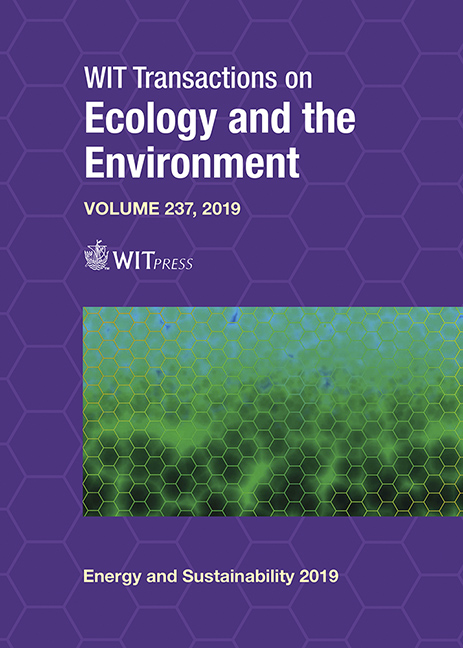FORMATE FISCHER–TROPSCH PROCESS FOR PRODUCING TRADITIONAL ENERGY CARRIERS WITH ZERO CARBON BALANCE
Price
Free (open access)
Transaction
Volume
237
Pages
8
Page Range
155 - 162
Published
2019
Size
619 kb
Paper DOI
10.2495/ESUS190141
Copyright
WIT Press
Author(s)
MIKHAIL GOTOVSKY, ALEXANDER GOTOVSKY, VITALY LYCHAKOV, VLADIMIR MIKHAYLOV, YURY SUKHORUKOV, EKATERINA SUKHORUKOVA
Abstract
The Fischer–Tropsch process (F-T process) is known as a method of synthesizing organic products (including liquid fuel) from CO + H2 mixture gases (synthesis gas) using various catalysts. The interest in the F-T process is associated with the global struggle against carbon emissions. Earlier we noted that the electrochemical synthesis of formic acid from water and atmospheric CO2 can be a promising general scheme for obtaining “green fuel” with minus (negative) “carbonic effect” simultaneously “formate cycle” (synthesis of organic products from formic acid produced from atmospheric CO2) fuel has zero carbon balance. This synthesis is brought to efficiency, surpassing natural photosynthesis. Synthesized formic acid can be used as a fuel for fuel cells and as a hydrogen accumulator. A semiproduct of green fuel synthesis with zero carbon balance and synthetic organic chemical products with minus carbon balance (thanks to bonded carbon from atmospheric CO2). From an economical point the direct use of formic acid would be more rational (with the exception of one stage), without first carbon monoxide separation. From the point of view of the physical chemistry, it is necessary to take into account the relatively low reactivity of formic acid in comparison with carbon monoxide. The traditional way of activation, by applying high temperatures, high pressures and specific catalysts in gas phase. However, using electromagnetic activation may be a more interesting pathway. This aspect will be discussed in this work. The final selection of the method based on the results of bench scale should be made on the basis of a complex criterion of the rate of passage of the modified F-T process and economic indicators: equipment cost, and energy consumption in terms of the mass of final products, taking into account of their cost. In this case, it appears an alternative way of obtaining some final products without using fossil hydrocarbons.
Keywords
Fischer–Tropsch process, formate cycle, green fuel, electromagnetic activation, zero carbon balance





